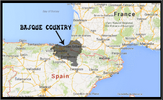J'ai eu la chance d'avoir un cheval APPACHE qui est toujours dans mes prières aujourd'hui, cela ne me viendrait pas à l'esprit de manger du cheval, je ne mange aucun bébé animal... Je me contente de boeuf, de porc... Mais ceux ci sont dans mes prières aussi chaque jour...
"Oh Divin Esprit Cosmique je remets entre tes mains tous les animaux que nous avons tué, que nous tuons, que nous tuerons, tous les animaux que nous avons torturé, que nous torturons, que nous torturerons, que nous avons abandonné, que nous abandonnons, que nous abandonnerons, tous les animaux à qui ont a pris leur chair, leur peau, leur plumes, leur amour, leur vie, leur amour, leur confiance à nous les humains"
Cette prière est dite chaque jour matin et soir...
J'étais végétarienne avant de venir au forum de LAURA...
I was lucky enough to have an APPACHE horse that is still in my prayers today, it would not occur to me to eat horse, I don't eat any baby animal... I am content with beef, pork... But those are in my prayers too every day...
"Oh Divine Cosmic Spirit I put in your hands all the animals that we have killed, that we are killing, that we will kill, all the animals that we have tortured, that we are torturing, that we will torture, that we have abandoned, that we are abandoning, that we will abandon, all the animals from whom we humans have taken their flesh, their skin, their feathers, their fur, their life, their love, their trust.
This prayer is said every day morning and evening...
I was a vegetarian before coming to LAURA's forum...



